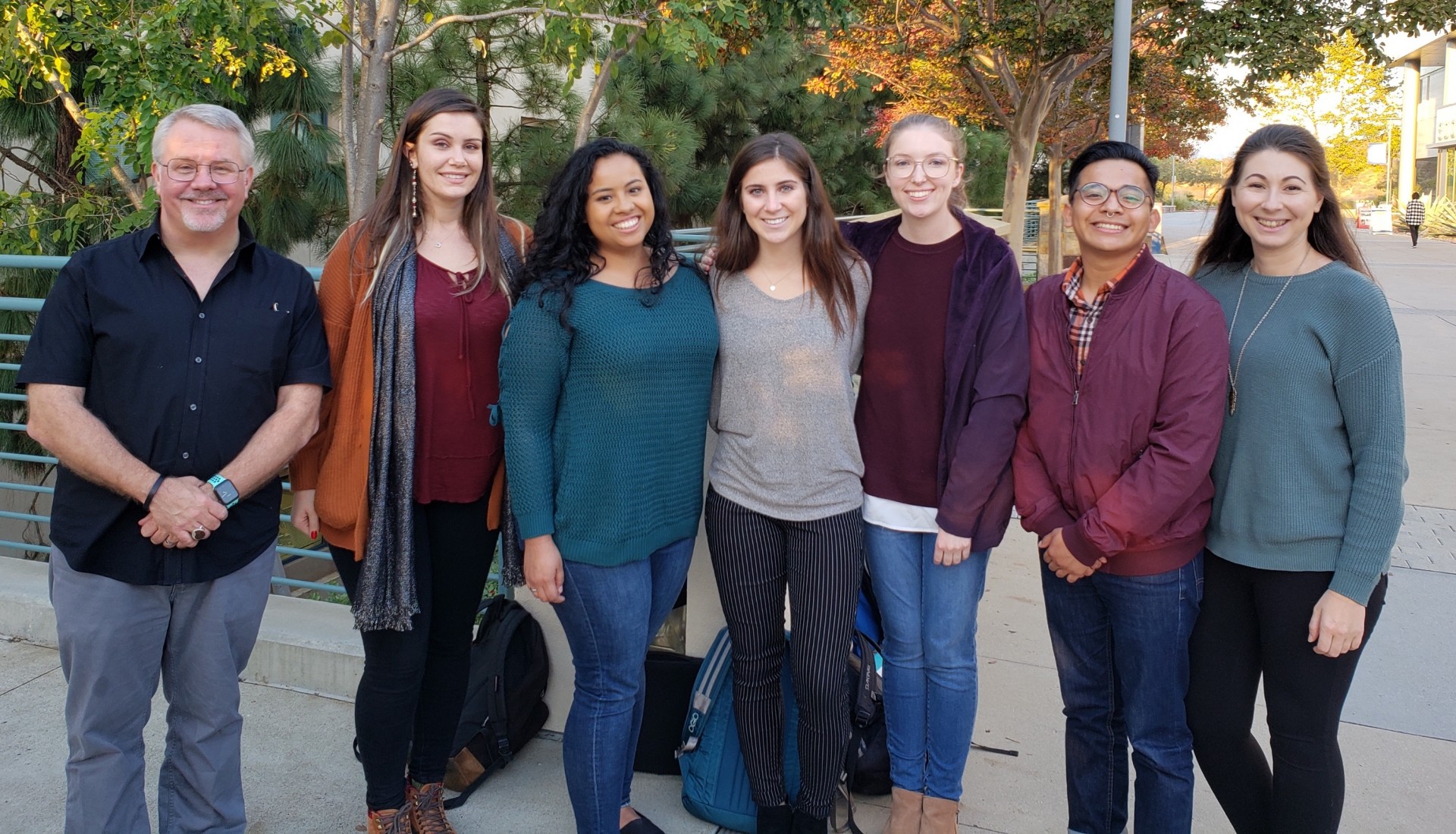CSUSM Solidifies Commitment to Green Chemistry
By Eric Breier
When Robert Iafe received a prestigious award in 2018, he had no idea it would put Cal State San Marcos on the path to join a small but growing group of colleges and universities around the world dedicated to implementing the principles of green chemistry.
But earlier this month, two-plus years after Iafe earned the Jean Dreyfus Lectureship for Undergraduate Institutions award, CSUSM President Ellen Neufeldt signed a Green Chemistry Commitment with the nonprofit Beyond Benign, stating that the university’s department of chemistry and biochemistry agrees with the Green Chemistry Student Learning Objectives outlined in the document.
“Now that our commitment has been signed, it's the department's task and duty to get there quickly and efficiently so that we can train students with these principles,” said Iafe, an associate professor of chemistry and biochemistry.
The Dreyfus award included a grant to host a leading researcher in the chemical sciences to give two lectures. Iafe used the grant to bring John Warner, a renowned chemist and co-founder of the Warner Babcock Institute for Green Chemistry, to speak at the Southern California Conferences for Undergraduate Research, which CSUSM hosted in November 2019.
Warner is also a co-founder of Beyond Benign, which aims to empower educators, students and the community to practice sustainability through green chemistry. The group defines green chemistry as “the design of chemical products and processes that reduce and/or eliminate the use or generation of hazardous substances,” and Warner’s 2019 keynote address on the topic inspired CSUSM students and faculty to pursue the Green Chemistry Commitment.
“Hearing him, it was like, ‘Why are we not doing this now?’ ” Iafe said.
“We are training chemists to be contributors in the pharmaceutical industry, contributors in materials design and industrial products. And the importance of training somebody is you have to be not only knowledgeable in how to do the chemistry and science, but the novel part about green chemistry is you also have to be responsible and knowledgeable for every bit that you partake in, in terms of health, safety and secondary consequences down the line.”
The Green Chemistry Commitment, which Beyond Benign launched in 2013, commits schools to ongoing improvement of the implementation of its Green Chemistry Student Learning Objectives. CSUSM is the first California State University institution to sign the commitment and one of about 80 in the world.
“About 5% of U.S. schools currently have Green Chemistry Student Learning Outcomes in their curriculum, so I like to think that at Cal State San Marcos we're leaders in change,” Iafe said.
Matthew Kromer, a lecturer of chemistry and biochemistry, is leading a workgroup that is developing a proposal to help the department implement the 12 principles of green chemistry.
The workgroup’s short-term goals include focusing on small substitutions in the existing curriculum to make labs safer and produce less harmful waste while also finding substitutes for hazardous chemicals. The workgroup also is updating existing student learning outcomes and lecture curriculum.
“Every chemistry course has a set of student learning outcomes, and currently they don't incorporate green chemistry,” Kromer said. “We're just slightly modifying them so the lecturers can very easily implement these green chemistry principles into their courses.”
Kromer said longer-term goals include implementing new lab protocols designed to incorporate green chemistry and teach students green chemistry in the lab; incorporating new courses; and, ultimately, to offer a green chemistry certificate or minor. Iafe and Kromer noted that a certificate or minor in green chemistry would be a boon for students as they enter the working world.
“A lot of these green chemistry principles involve minimizing waste, and there are EPA regulations in place that require a company to treat that waste, which costs money,” Kromer said. “So if you are more sustainable in an industrial environment, ultimately that will save the company money. That's a really powerful thing we want our students to bring to the workforce and really solidify Cal State San Marcos' name in the chemical industry. Companies will know that we're training chemists and biochemists to incorporate concepts of sustainability and green chemistry into their work.”
Media Contact
Eric Breier, Public Affairs Specialist
ebreier@csusm.edu | Office: 760-750-7314


